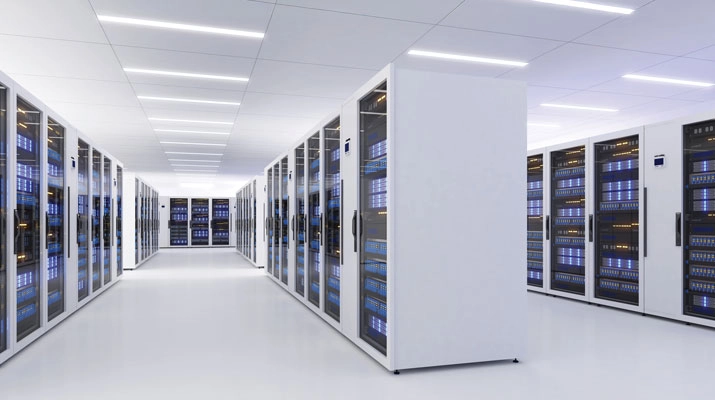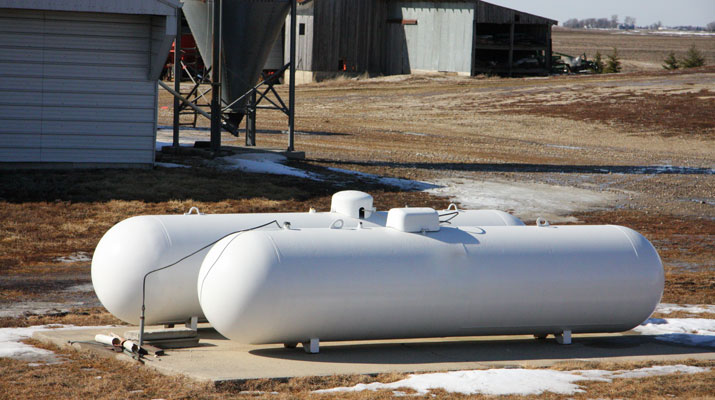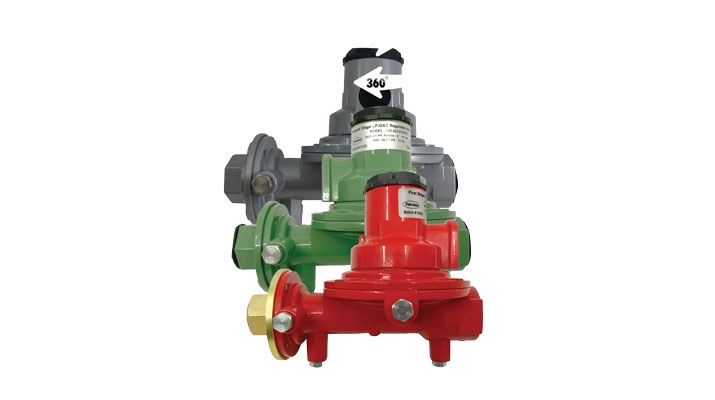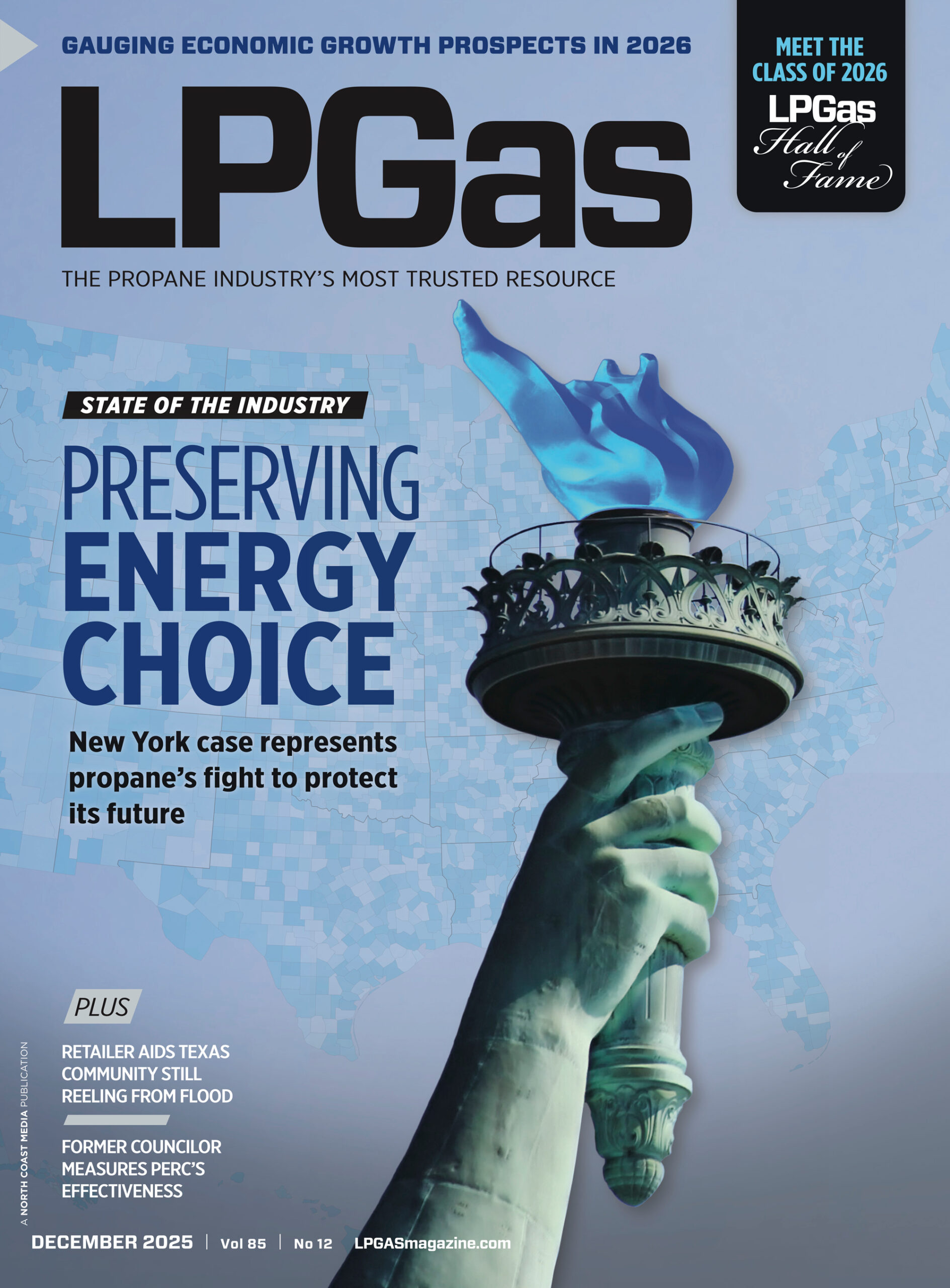The latest in propane-fueled power generation products
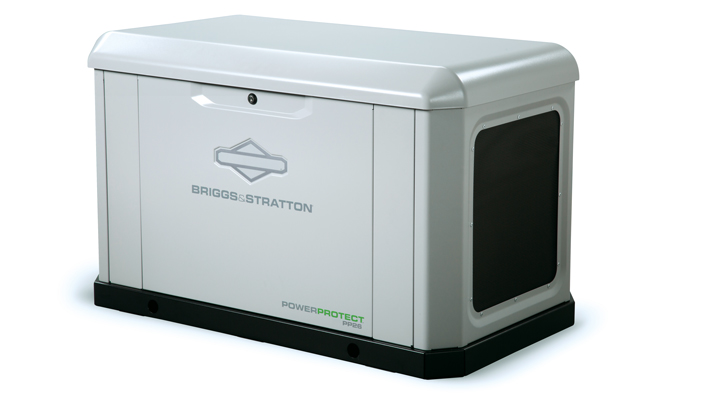
Standby generator
Briggs & Stratton PowerProtect standby generators are designed to run on both liquid propane and natural gas. These standby generators deliver more power on propane due to the energy-dense nature of the fuel, according to the company. In fact, the rated power listed on a standby generator (13 kW, 26 kW) is the power output on propane, not natural gas, the company notes. That makes these generators ideal for remote locations where propane is plentiful, and natural gas might be hard to access. The 26-kW unit was recently updated and now has 60 percent more motor starting power with 65.6 kVA for a smooth startup of large equipment. The generators also have a seven-year warranty.
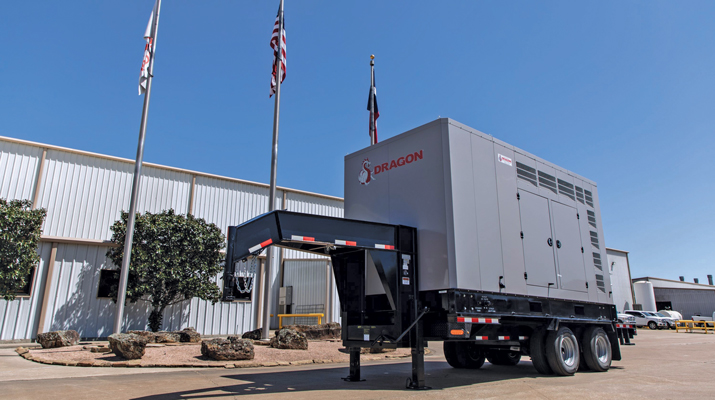
Portable generators
Dragon Products is a Texas manufacturer of gas-powered, portable generators from 400 kW to 4.3 MW. Its 400-kW generator (pictured) comes factory ready on propane or natural gas. Its 4.3-MW turbine requires one valve change to be propane-ready. Propane generators provide reduced emissions from diesel fuel, the company notes, adding that propane is also approximately 45 percent less than red diesel at the pump (using $18.49 MMBtu for diesel and $10.60 MMBtu for propane). If diesel is stored in the Midwest or North, the cost of an insulated diesel tank is close to the cost of a 30,000-gallon propane tank per gallon, the company adds. It also says the challenge of supplying a data center, microgrid or backup power installation is no more difficult with propane or diesel with proper planning and preparation.
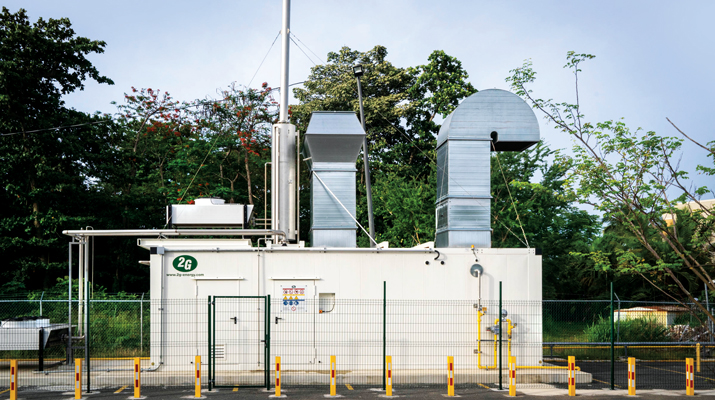
CHP system
2G Energy’s propane-fueled combined heat and power (CHP) systems deliver reliable, on-site energy while maximizing efficiency, according to the company. Designed for prime and continuous duty, these modular systems provide both electricity and thermal energy with high overall efficiencies. Ideal for off-grid applications, microgrids or as a resilient backup power source, 2G’s engines range from 50 kW to 2.5 MW. With low emissions and flexible fuel compatibility, they offer a sustainable alternative to diesel, meeting stringent air quality standards while maintaining performance. Whether powering agricultural operations, manufacturing sites or critical infrastructure, 2G’s propane solutions help future-proof energy needs, without the utility delays, the company adds.
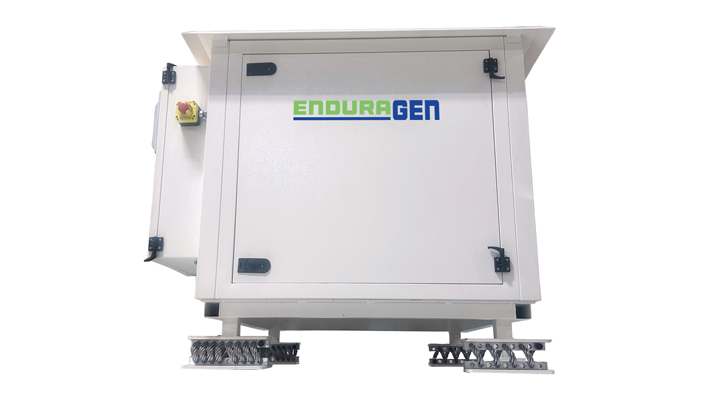
Micro-CHP
Axiom Energy Group has rebranded its 4.4-kW micro combined heat and power (micro-CHP) system to EcoPrime. Running on propane or natural gas, this micro-CHP system is designed to enhance energy efficiency while reducing operational costs and significantly lowering emissions. With energy costs on the rise, EcoPrime serves as a solution, generating both electricity and heat simultaneously, the company says. This dual functionality is ideal for applications that have high hot water demands and can use the electricity on-site, reducing grid reliance. Axiom Energy also just debuted its newest product, EnduraGen: a prime power generator fueled by propane or natural gas. It boasts a long maintenance interval (4,000 hours) and long life (40,000 hours), making it ideal for locations requiring a reliable and durable energy source with minimal emissions. Additionally, commercial facilities can take advantage of a $12,000 rebate available through the Propane Education & Research Council, making the initial investment more appealing, the company adds.
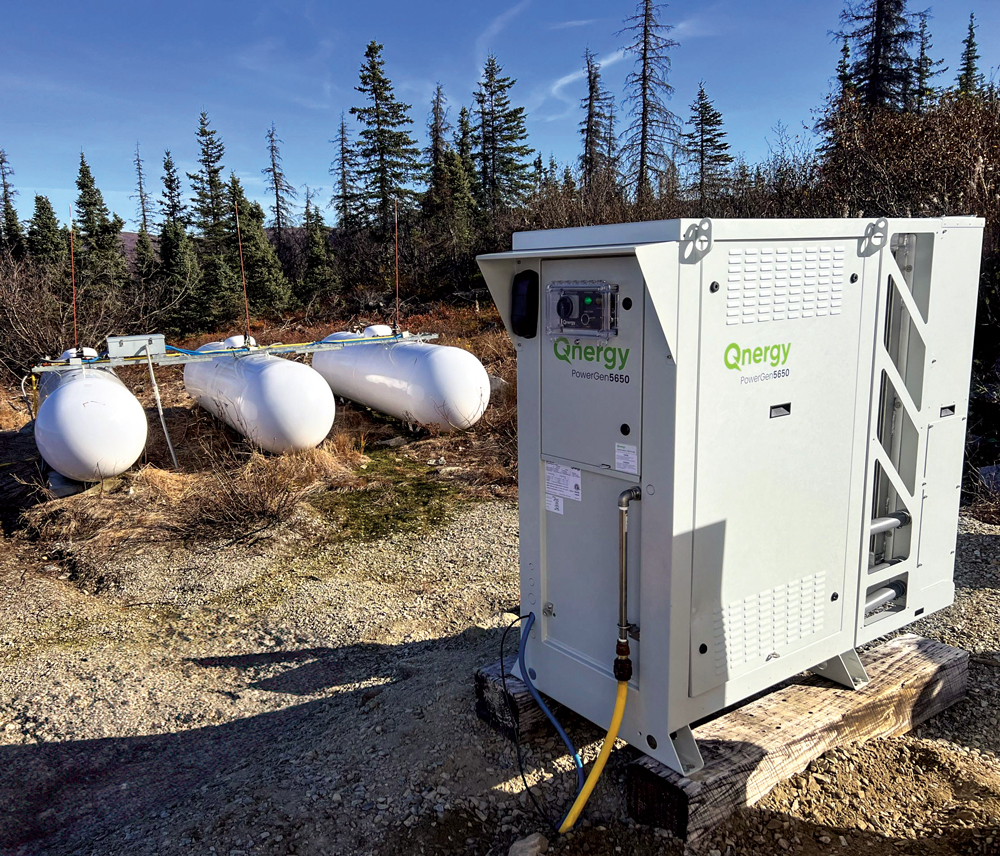
Thermal-powered generator
Qnergy’s PowerGen, driven by a free piston Stirling engine, is an advanced thermal-powered generator, engineered to operate with minimal maintenance requirements while supplying grid-quality power. Designed to run on a variety of gaseous fuel sources, the PowerGen is well-suited for propane, making it an ideal solution for off-grid and remote power applications. With its ability to deliver grid-quality electricity in the harshest environments, PowerGen supports everything from prime power and backup systems to telecommunications and SCADA operations. Its flexible configuration and multiple power output options allow it to meet the evolving needs of propane-powered infrastructure across all industries.
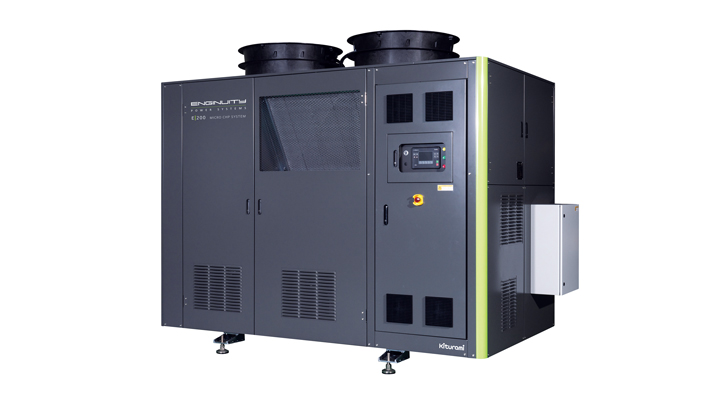
Cogeneration systems
Enginuity Power Systems offers the KGP-100NE and KGP-200NE propane- or natural gas-fired cogeneration systems built for off-grid reliability, energy resilience and efficiency. Both EPA-certified for natural gas and field convertible to propane, these UL2200-listed units deliver 85 percent overall efficiency and black-start capability, ideal for agricultural, commercial and remote applications, according to the company. Their robust thermal recovery and three-way catalyst emissions system outperform many diesel gensets – cutting both operating costs and carbon footprint, the company adds. With installation support via distributor partners, these systems empower propane marketers to expand recurring fuel sales while offering end users cost-effective, clean, on-site generation.
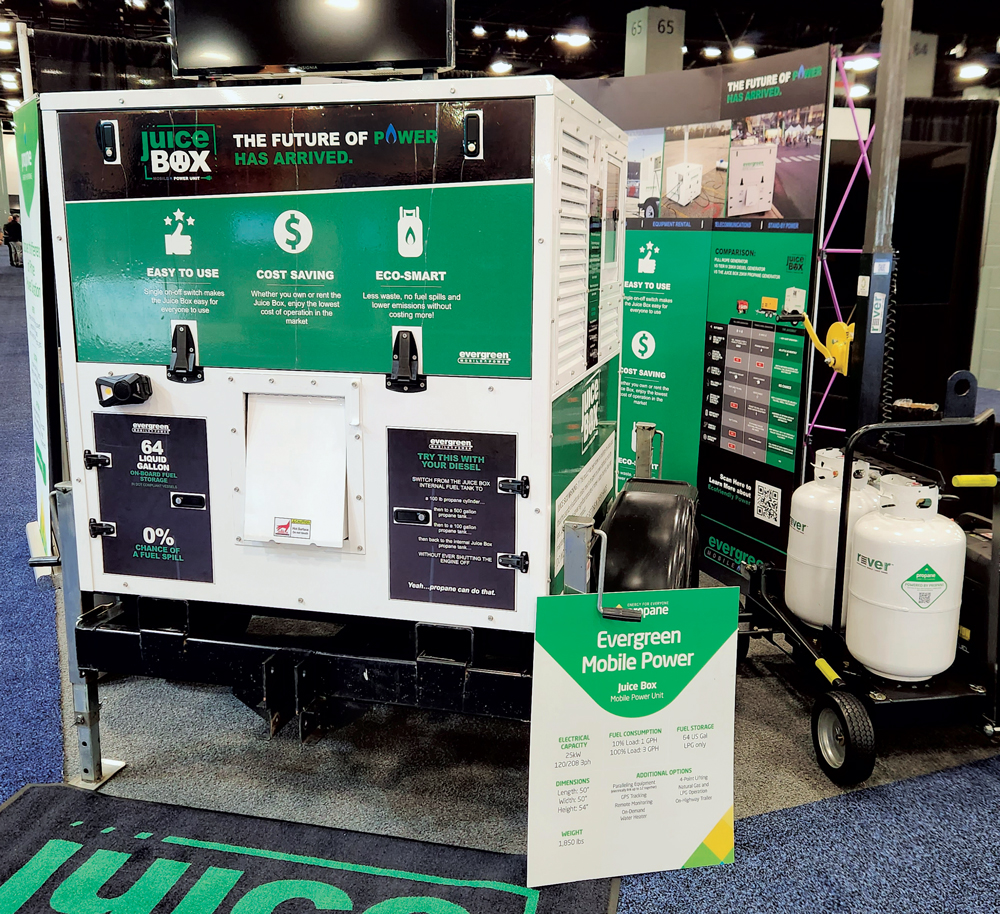
Mobile generator
Evergreen Mobile Power says its 25-kW JuiceBox mobile power unit, running on propane or natural gas, offers low maintenance costs, easy and reliable operation, and an environmentally friendly option to meet a variety of power needs. The company says the JuiceBox can be found in applications for the equipment rental industry, autogas, oil fields, auto racing venues, construction, homebuilding, disaster relief and battery energy storage systems, among others. In addition, propane marketers are using the JuiceBox as a source of additional revenue from rental/leasing operations, taking gallons from the diesel generator market that previously had been the standard fueling option, according to the company. In the new generation of power gen, customers are looking for a cleaner alternative to diesel, the company adds.
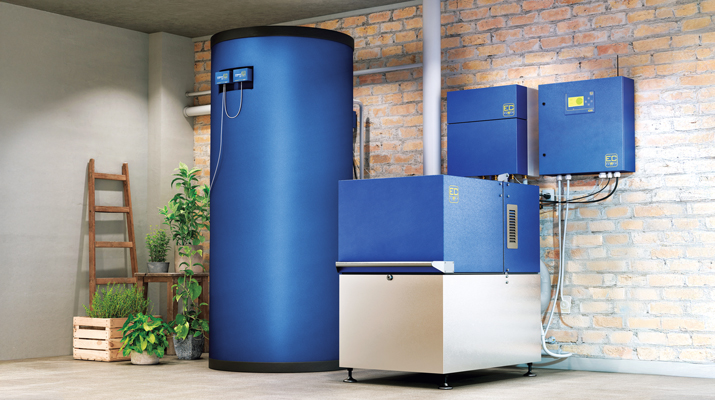
CHP system
EC Power’s XRGI25 is a 24-kW combined heat and power system (CHP) that provides both heat and on-site power from a single unit. “The machine’s output can vary with demand and ranges from 12-24 kW in electrical power while also producing 112,000 to 163,000 Btu/hour in heat,” EC Power CEO Anders Thorsen says. “It’s an incredibly quiet technology at 49 decibels and is designed for continuous use and long life (40,000 hours), with a service interval of 4,000 hours.” For propane marketers, the machine can offer year-round fuel consumption opportunities. It consumes between 2.0 and 3.2 gallons per hour of operation. At the midpoint, that’s about 62 gallons per day and over 22,000 gallons per year. When the demand for heat and power exceeds the output of a single unit, multiple units can be cascaded together. EC Power is a family-owned business, founded in Denmark in 1996, and has established itself as a manufacturer of CHP systems. It has installed more than 15,000 units across 27 countries and expanded its operations to the United States. In 2023, the company established an office, demo site, training facilities and warehouse in Smithfield, Rhode Island.








